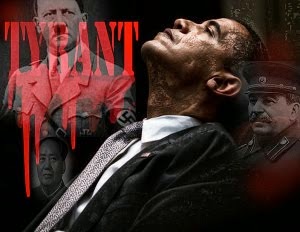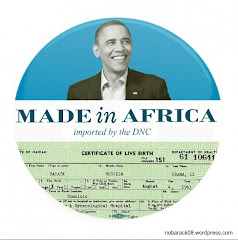Understanding Taqiyya ― Islamic Principle of Lying for the Sake of Allah
first published in Australia in 2007
Lying and cheating in the Arab world is not really a moral matter but a method of safeguarding honor and status, avoiding shame, and at all times exploiting possibilities, for those with the wits for it, deftly and expeditiously to convert shame into honor on their own account and vice versa for their opponents. If honor so demands, lies and cheating may become absolute imperatives.” [David Pryce-Jones, “The Closed Circle” An interpretation of the Arabs, p4]
“No dishonor attaches to such primary transactions as selling short weight, deceiving anyone about quality, quantity or kind of goods, cheating at gambling, and bearing false witness. The doer of these things is merely quicker off the mark than the next fellow; owing him nothing, he is not to be blamed for taking what he can.” [David Pryce-Jones, “The Closed Circle”, p38]
The word "Taqiyya" literally means: "Concealing, precaution, guarding.” It is employed in disguising one's beliefs, intentions, convictions, ideas, feelings, opinions or strategies. In practical terms it is manifested as dissimulation, lying, deceiving, vexing and confounding with the intention of deflecting attention, foiling or pre-emptive blocking. It is currently employed in fending off and neutralising any criticism of Islam or Muslims.
Falsehoods told to prevent the denigration of Islam, to protect oneself, or to promote the cause of Islam are sanctioned in the Qur'an and Sunna, including lying under oath in testimony before a court, deceiving by making distorted statements to the media such as the claim that Islam is a “religion of peace”. A Muslim is even permitted to deny or denounce his faith if, in so doing, he protects or furthers the interests of Islam, so long as he remains faithful to Islam in his heart. (See endnotes)
Like many Islamic practices, taqiyya was formed within the context of the culture of Arab tribalism, expansionary warfare, Bedouin raiding and inter-tribal conflict. Taqiyya has been used by Muslims since the 7th century to confuse, confound and divide 'the enemy’.
A favoured tactic was ‘deceptive triangulation’; used to persuade the enemy that preparations for a raid were not aimed at them but at another tribe altogether. The fate in store for the deceived enemy target was an unexpected plunderous raid, enslavement of the women and death to the post-pubescent males.
The core foundation of hyper-masculine Arab culture is bound up in perceptions of "honour and shame". At all times, he (it's usually a male) must avoid having his face "blackened" by words or actions which are a slight upon, a challenge or affront to, his status in the family or broader social / tribal group. To be open, frank and forthright or to make self-damning admissions in his dealings (particularly with the infidel enemy) is to leave himself open and vulnerable to humiliating shame and to the subsequent disrespect from his peers. Tongues will wag in the bazaar’s coffee shops and rumours will rapidly spread that so-and-so has lost his "manliness" and status. In short, he is no longer worthy of deferential respect; to an Arab, this is worse than death itself.
The higher one is placed in the social order (or rather, on how important the individual perceives himself to be), the more imperative it becomes to strenuously avoid “loss of face”. The male's perceived loss of honour and status, must be redressed and his face "whitened", i.e. his honour regained and restored, at any cost; even to the extent of (as in the honour killing of daughters) murdering the person “responsible” for causing the initial humiliation. When taqiyya is used to avoid making an admission or concession it is simply an essential means of ensuring that ones honour and standing remain intact and untarnished. Blood feuds and vendettas, caused by an ancient humiliation of a long dead ancestor, can persist, fuelled and propelled by shame and honour, for generations. Muhammad, who is promoted as every Muslim’s exemplar, set the precedent for vengeful retaliation when he ordered the murder of those who mocked or satirised him and, as he was an Arab, caused him potential loss of face. [See link, “Muhammad’s Dead Poets Society”]
Outwitting:
Islamic spokesmen commonly use taqiyya as a form of 'outwitting'. The skilled taqiyya-tactician doesn’t want the matter at hand to be debated or discussed; so his opponent must be outwitted or preemptively outflanked by the use of taqiyya. The objective is to divert attention away from the subject through duplicity and obfuscation.
The claim is often made that difficulties in translating from Arabic to English makes the meaning of what they say or write difficult or impossible to convey….this is simply another subterfuge. Keysar Trad has repeatedly claimed that Sheikh Hilali’s obnoxious, inflammatory and misogynistic comments have been “mistranslated”, misquoted or “taken out of context”. The aim of this ploy is to dilute or neutralise public opprobrium. The use of independent translators has, in the past, disproved his assertions. The Sheikh states what he believes to be correct according to Islamic precepts and his “interpreter” reconfigures the statement to make it palatable to the unwitting listener.
Consider the following statement by Mr. Trad on the February 24 2006.
Keysar Trad, president of the Islamic Friendship Association of Australia, told Reuters that Australian Muslims
agreed with Costello's (Australia’s Treasurer, Peter Costello) sentiments about being good, law abiding citizens.
"But to continually single out the Muslim community like this is very unhelpful, it's very divisive and it does stir up Islamophobia”,
Trad said.
"We're proud to be Australian and our religion strongly stipulates that if you make an oath, whether it's an oath of citizenship or any other oath, that you honour it, abide by it."
However, the Prophet Muhammad seems to have a different idea on the subject.
Sahih Bukhari, Volume 7, Book 67, Number 427:
“By Allah, and Allah willing, if I take an oath and later find something else better than that. Then I do what is better and expiate my oath.' "
Role playing as the victim:
When placed under scrutiny or criminal investigation, (even when there is overwhelming, irrefutable evidence of guilt or complicity), the taqiyya-tactician will quickly attempt to counter the allegation by resorting to the claim that it is, in fact, the accused who are the 'the victims'. Victims of Islamophobia, racism, religious discrimination and intolerance. Currently, this is the most commonly encountered form of distraction and 'outwitting'….. Defence by offence.
Manipulative ambiguity and Semantics:
Sheik Hilali and the late Yasser Arafat are both on public record as (a) 'condemning' the 9/11 attacks, in ambiguous terms, to the Western media and (b) praising suicide bombings, or “ martyrdom operations”, to their Arabic speaking audiences .
Islamic spokesmen will rarely unequivocally condemn a specific act of terrorism and direct questions will be skillfully evaded.
(NB: because Muslims regard Islamic attacks as “jihad”, and not terrorism, their spokesmen can truthfully deny any support for terrorism.)
Interviewers would be better advised to ask the more precise question “do you believe in jihad against the unbelievers?
However, a direct question requiring a simple "YES" or "NO" reply is rarely forthcoming and is usually deflected by responding with a tangentially irrelevant rejoinder or, in an attempt to neutralise the original question, counter-challenging with another question such as “are you in favour of killing children in Iraq?”…..Touché and Checkmate!
Diversion, deflection and "tu quoque”:
Questions relating to the 9/11 terrorist attacks will usually be diverted by either making outrageously wild conspiracy claims “the CIA did it to give the U.S. an excuse to attack Muslims,… Mossad was the perpetrator… No Jews came to work at the World Trade Centre on September 11” etc. or by making an irrelevant counter reference to “the plight of the Palestinians”,.. Iraqis,.. colonialism,.. the crusades, or US foreign policy’s support for Israel” as the 'root causes' of terrorism.
Then, of course, there’s the ever popular, specious allegation that George Bush is a bigger terrorist than Osama bin Laden.
Diversionary “tu quoque” response ploys usually start with the words “but” or “what about…?” in an attempt to turn, and transfer an equal culpability back on their interlocutor.
Demanding 'evidence':
Islamic spokesmen practice a form of taqiyya defined in psychology as 'cognitive denial' by repetitive and persistent demands of 'where is the evidence!' and 'prove it!' whenever there is Muslim complicity in terrorist acts, evidence, which they know very well, for security or legal sub-judice restraints, can not be disclosed. If indeed the “evidence” were to be publicly presented, they would then move on to the familiar “prejudicial to the defendant receiving a fair trial--grounds for a mistrial” default position.
Tactical denial:
Rather than admitting that a proposition concerning a subject under discussion can be partly true, an Islamic spokesman will flatly deny a claim or proposition in absolute terms. For example, "It is impossible to be a Muslim and a terrorist”; this semantic argument is purely a matter of definition, because radical Islamists don’t define their violent attacks as terrorism, but jihad. (i.e. holy war in the way of Allah) .Another popular assertion is that 'Islam forbids suicide', which is true, but by virtue once again of definition, irrelevant, because suicide bombings are regarded as “martyrdom operations” and are therefore not forbidden, but on the contrary, admirable and praiseworthy. Muslim spokesmen are also fond of using extreme hyperbole. Their refutations regularly include the word “percent”. e.g. “I am 150% certain that Jews orchestrated September 11”…. “I guarantee the accused is 200% innocent”.
Exploiting cognitive dissonance:
Islamic spokesmen regularly perplex and baffle interviewers and their audiences as they resort to double talk, 'clichés and platitudes' concerning Islam. A state of cognitive dissonance (i.e. holding two contradictory beliefs and attempting to resolve them) is therefore induced in viewers and readers as they attempt to mentally process the claim that Islam is a peaceful religion despite the indisputable evidence before them of Islamist involvement in terrorist acts or criminal conduct.
























 An election for President and Commander in Chief of the Military must strive to be above reproach. Our public institutions must give the public confidence that a presidential candidate has complied with the election process that is prescribed by our Constitution and laws. It is only after a presidential candidate satisfies the rules of such a process that he/she can expect members of the public, regardless of their party affiliations, to give him/her the respect that the Office of President so much deserves.
An election for President and Commander in Chief of the Military must strive to be above reproach. Our public institutions must give the public confidence that a presidential candidate has complied with the election process that is prescribed by our Constitution and laws. It is only after a presidential candidate satisfies the rules of such a process that he/she can expect members of the public, regardless of their party affiliations, to give him/her the respect that the Office of President so much deserves.

No comments:
Post a Comment
Note: Only a member of this blog may post a comment.